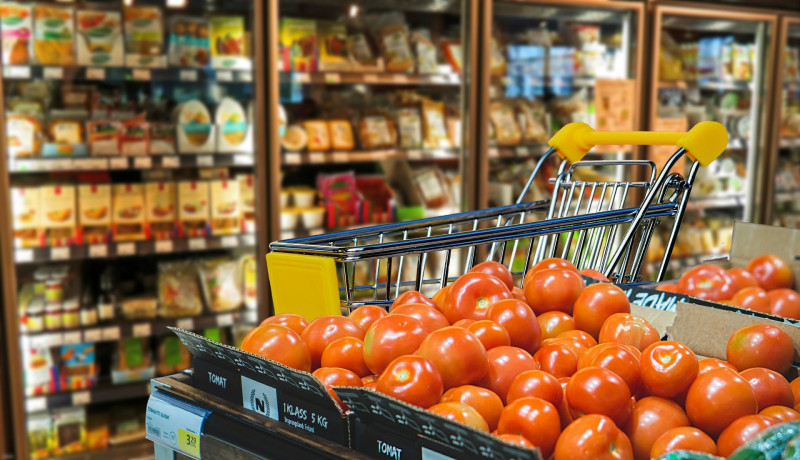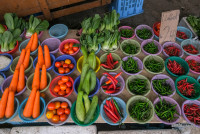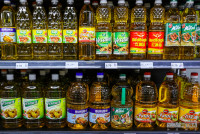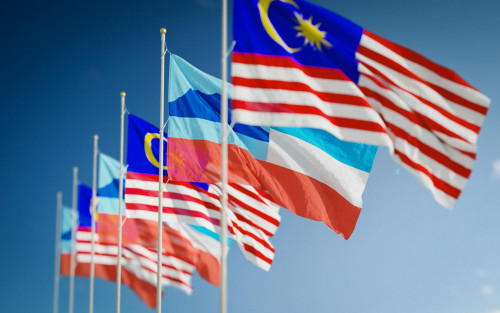
THE call to buy Malaysian products is essentially a call for patriotic shopping. To achieve this, the Domestic Trade and Consumer Affairs Ministry has adopted a two-pronged strategy.
Influencing retailer conduct
The first prong is to increase the availability and visibility of Malaysian products at retailing outlets both on online platforms and at traditional retail outlets, such as supermarkets, minimarkets and mum-and-pop stores. This is an essential first step.
Retail buyers choose from thousands of products presented to them, however, only a small proportion makes it into stores due to limited shelf space. Consumers then get to choose from the range of products that retail buyers have pre-purchased on their behalf.
Retail buyers, thus, determine product availability and range for consumers to choose from – they are gatekeepers of consumer choice. Retailers also determine product placement at their outlets.
The ministry has sought to influence retailer conduct by persuading retailers to include and visibly display Malaysian products at their outlets, including by way of a Malaysian-products section. It has also sought the increase of Malaysian products offered on online platforms, with Budget 2021 setting aside RM150 million for the Shop Malaysia online initiative.
Influencing consumer conduct
The second prong of the “Buy Malaysian Products” campaign is to influence the shopping behaviour of consumers by a call to be patriotic and extolling the quality of Malaysian products as being internationally competitive.
The awareness campaign is conducted via mass and social media, at retail stores, mini trade fairs and the Ministry’s own website. Even in July and August this year, the ministry conducted a total of 11 fairs in various places in the country.
These initiatives have an impact and efforts have to be enhanced so as to increase employment and support our producers during this time of exceptional hardship.
Let not the effect wane
Buy national campaigns have been attempted in virtually every country in the world, be it developed or developing. Our own campaign was first launched in 1984 and had been re-launched on at least two earlier occasions. The impact of such campaigns has, in most cases, proven to be transient. They do initially achieve a high level of awareness among consumers. However, over time, consumers find it a burden to pay a premium for local products. Retailers, too, become disinclined to carry local products without sales volumes justifying it. The market is not moved by morals or patriotism – it is moved by profits.
Moreover, the government with its comparatively tiny campaign budget cannot continue to influence consumer purchasing behaviour in a dynamic market in competition with individual brands and products that are promoted by experts with years of experience and immense resources.
Buy national campaigns have not been proven to be sustainable and invariably fizzled out with no lasting impact on consumer behaviour or any favourable impact on the country’s balance of trade.
This need not also be the case with the current Buy Malaysia campaign.
Measures for lasting effect
Increase value for consumers
The Malaysian consumer is patriotic. However, in the longer term there will be a disconnect between consumer beliefs and consumer behaviour. They will cease to buy Malaysian products unless they can perceive additional value in these goods on pragmatic grounds.
It is essential to understand that consumers purchase what they consider to be of value to them – price, quality, satisfaction and trust are fundamental.
The ministry needs to be seen enforcing laws related to product safety and quality, ensure after-sales service, encourage the establishment of transparent online complaints processing by industry and provide an online dispute resolution (ODR) mechanism. The rights conferred in the Consumer Protection Act 1999 need to become a practical reality for Malaysian consumers.
Reduce Costs for Businesses
The government needs to also cut the price of doing business. The complexity of regulatory procedures remains a major obstacle to entrepreneurial activity, especially so for SMEs, which comprise 98.5% of the businesses in the country, employ 88.2% of Malaysians and contribute 38.3% of the GDP. They contribute only 17.3% of exports.
Prior to the Covid-19 pandemic, Malaysia had more than 900,000 SMEs. They are of immense variety and range from owner-operated microenterprises (76.5%) to small enterprises (21.2%) to medium-sized (2.3%) ones, some of which are ready to be listed in the Kuala Lumpur Stock Exchange.
Long outstanding problems that SMEs complain of are complicated regulatory controls, including tangled licence and permit systems, absence of competitive neutrality resulting in the lack of a level playing field, and corruption and harassment by administrators.
The SME world comprises two parallel economies – the legal and the extra-legal. An elite minority enjoys the benefits of the law and globalisation, but a very large number, particularly amongst micro- and small enterprises, struggle with regulatory compliance and exist in the shadows of the law.
To survive, protect their assets and do as much business as possible, the extra-legal create their own survival codes that adversely impact society at large – illegal migrant labour, compromised health and safety systems, and environmental pollution.
Cutting red tape is the way to go. Chile has established a virtual one-stop shop that helps the creation of a firm with minimal red-tape, at zero cost and in one day. Much can be learnt from the Business Forum for Simpler Rules (Denmark), Burden Hunt Programme (Sweden) and the Red Tape Challenge (UK). The last of these led the British government to design a package of 3,000 reforms to cut red tape. A key feature of all these efforts is that suggestions are sought and received from the public and enthusiastically acted upon.
SME Corp needs to establish a Regulatory Compliance Support Unit that will offer assistance to prevent compliance issues escalating into complaints and disciplinary actions. The support unit must just offer support and not itself morph into an oppressive regulator.
A recent United Nations Conference on Trade and Development survey of nine countries entitled “Covid-19 and E-Commerce” found that consumers in China were most keen on e-commerce, and that the e-commerce capabilities of small merchants were well-developed. They also mostly use Alipay, WeChat pay and bank transfers as opposed to credit and debit cards.
These findings lend support to the proposal that to boost productivity and push SMEs towards Industry 4.0, a complete and comprehensive mobile application specially developed to assist SMEs in automating their processes is needed. The cost of building such an app will be high but will prove cost efficient in the long run when used by the close to one million SMEs in Malaysia. The Malaysia Digital Economy Corporation, which has been entrusted by the government to lead digitalisation in the country, needs to take note of this call. – The Vibes, December 11, 2020
Prof Emeritus Datuk Sothi Rachagan is a former dean of the Universiti Malaya’s Law Faculty, vice-chancellor of Perdana University and Nilai University, and president of the International Association of Consumer Law. He serves on the boards of numerous international consumer protection bodies












_and_lord_mayor_rajendran_posing_in_a_mock_up_lrt-Ian_pic.jpeg)








